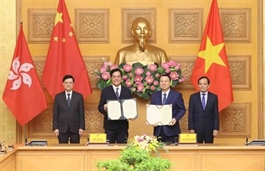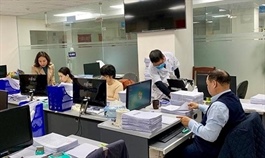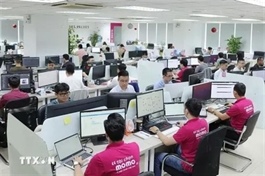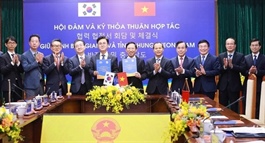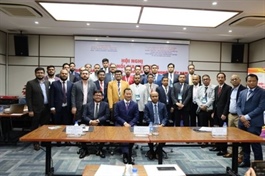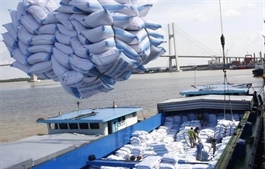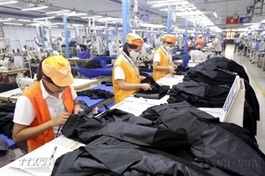Mekong Delta urged to strengthen connectivity to attract FDI firms
Mekong Delta urged to strengthen connectivity to attract FDI firms
Facilitating the foreign direct investment (FDI) flows is an effective solution to drive the development in the Mekong Delta region, according to insiders.

Over the past time, to attract businesses, regional localities have continuously improved their investment and business environment, resulting in a gradual increase in the annual Provincial Competitiveness Index (PCI). However, these have not yet been sufficient to attract significant FDI flows.
In addition to its potential as a major agricultural production hub of the country, the Mekong Delta also boasts advantages in industrial development, such as offshore wind power and the processing of agricultural, aquatic, and seafood products. Notably, with government investment, numerous expressways are being built, creating many opportunities for the entire region to attract FDI.
Pham Ngoc Thach from the Vietnam Chamber of Commerce and Industry (VCCI) stated that the 2023 PCI report released in May show that out of the top 30 localities with the most favourable investment environments, the Mekong Delta has eight.
The region has been also highly regarded by businesses for the dynamism and pioneering efforts of local authorities over many years of survey, scoring an average of 6.85 points in 2023, ranking second, after the Red River Delta region.
However, it ranks only fourth out of the six regions in terms of FDI attraction. Data from the Foreign Investment Agency under the Ministry of Planning and Investment shows that Vietnam has to date attracted approximately 484.77 billion USD in FDI, of which the Mekong Delta has received over 36.2 billion USD, accounting for about 7.5 per cent of the country's total.
Toshiyuki Fukuda, General Director of Nippon Koei Vietnam International Co., Ltd., said that for small and family-owned Japanese companies investing in a region, it is essential to have international-standard amenities and schools to accommodate their families, but Can Tho city and the Mekong Delta region in general have yet to fully meet. Additionally, the lack of direct flights linking Can Tho to Japan poses a challenge for companies considering investment in the area.
Asked about the desired investment conditions in the Mekong Delta, Watanabe Michitaro, Mayor of Japan’s Nasushiobara city, noted that investors highly value Can Tho’s young and abundant workforce and the hardworking nature of its workers. However, to further enhance the competitive advantage in labour, it is necessary to build industrial work habits and job discipline, and focus on developing science and technology, he stressed.
Nguyen Phuong Lam, Director of the VCCI Can Tho branch, said that to attract “eagles”, the region should build a comprehensive strategy, with clear commitments, and incentive policies and mechanisms; while focusing on addressing the overlap between legal documents, unclear business conditions and decentralisation, and issues related to planning and planning adjustments, administrative procedures and export support.
Dr. Tran Huu Hiep, economic expert of the Mekong Delta region, advised localities to strengthen connectivity, step up investment promotion, and deal unfair competition and fragmented economic space, and work out systematic immediate and long-term strategies and solutions.



